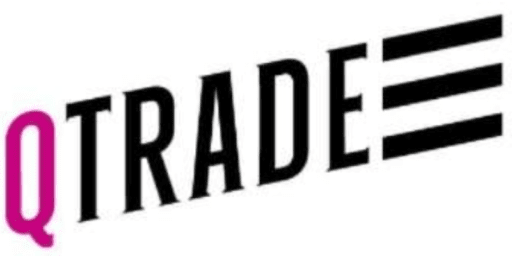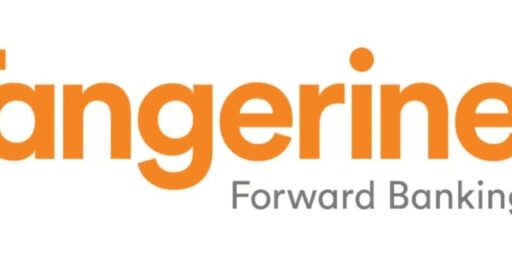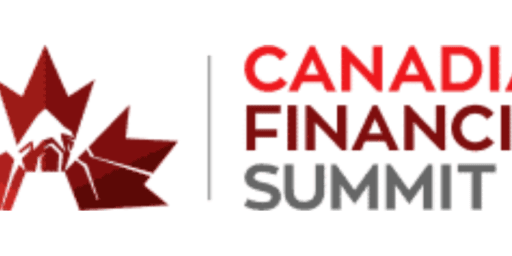Investing on Behalf of my Kids
When looking to invest on behalf of your children in Canada, there are many competing ways to do so. If you’re fortunate enough to be in a financial situation that allows you to give your children a bit of a leg-up, then you likely want to make sure you get the most bang for your buck (and save the most tax dollars possible).
Obviously most young families don’t have a lot of excess cash lying around, but you don’t have to wait until your children are teenagers to get started. In fact, many parents and grandparents begin investing for their children right from birth.
Whether you’re looking to fund their future education, help them with a first home down payment, or just give them a financial head start, there are some excellent tools available in Canada. From RESPs and informal trusts, to insurance-based plans and even creative TFSA/RRSP strategies, there are many options available.
Let’s break down the best ways to start investing for a child in Canada, and how to make the most of the tax advantages that come with them.

Best 2025 Broker Promo
Up To $2,000 Cash Back + Unlimited Free Trades
Open an account with Qtrade and get the best broker promo in Canada: 5% cash back when you fund a new account!
The offer is time limited - get it by clicking below.
Must deposit/transfer at least $1,000 in assets within 60 days. Applies to new clients who open a new Qtrade account by November 26, 2025. Qtrade promo 2025: CLICK FOR MORE DETAILS.
Investing on Behalf of Children: RESP
At the end of the day, we want our future adult children to be self-sufficient with fulfilling work. One of the best ways to give our children the best chance at achieving that goal is encouraging them to attend university and to earn a degree. This of course will make them more likely to earn more money throughout their lifetime, enabling them to invest and retire well just like you.
In Canada, an RESP is one of the best ways to help your child start saving for post-secondary education. It just so happens to be the most tax-efficient way to do so. You can easily open an RESP with our top recommended online brokerage, Qtrade.
If you are not familiar with RESPs, check out our full write up: Indexed Family Education Fund (RESP).
RESPs are great, but they come with limits. For example, there is a lifetime limit for each beneficiary of $50,000. Also, they are limited to spending the funds in their RESP on a qualified post-secondary institution.
So, while it would be wonderful if we could know for sure that our child will pursue a post-secondary degree, there is no such guarantee. If your child chooses to pursue a different path, luckily, there are a few options of how you can use the money parked in their RESP.
If you do choose to go with an RESP and max it out, there are more options to help you invest for your children.
Life Insurance and Trusts
There are multiple companies out there offering tax-sheltered life insurance plans, such as Manulife and Canada Life, allowing you to save for your child’s future.
Essentially how these work is that you make a lump sum payment or annual payment of a certain amount to the life insurance company, and over time, interest accrues. These are tax-efficient because they are considered tax-exempt. Depending on the plan, you can later withdraw funds to help pay for your child’s education, graduation gift, wedding, and so on.
Another strategy is to create an informal in-trust investment account for each child, putting a lump sum in there, and indexing the portfolio to be used for a big future event. It is even possible for these investments to provide a small income stream for your child for life, if the portfolio grows large enough.
Say that I invested $10,000 into a balanced index portfolio returning 5% after inflation. When my kids are in their:
- late 20’s, the portfolio would be worth almost $26.5k in today’s dollars;
- late 30’s, the portfolio would be worth almost $43k in today’s dollars;
- late 40’s, the portfolio would be worth almost $70k in today’s dollars;
- late 50’s, the portfolio would be worth almost $114k in today’s dollars; and,
- late 60’s, the portfolio would be worth almost $187k in today’s dollars.
Formal trusts are needed for larger sums of money, and require a lawyer to complete the process.
Both informal in-trust investment accounts and formal trusts are not tax-exempt, and you as the donor will be responsible for paying taxes on interest or dividends earned each year. However, the child will be responsible for paying the capital gains tax when they withdraw the money later.
Create an Investment Account Just for Your Kids
Another possibility is to simply open a separate brokerage account, knowing that the money in that account is solely for your child’s future. By law, minors cannot invest themselves until they are of age and have an earned income. That should not stop you from opening a separate brokerage account to fund their futures if you so choose.
Tax Consequences
There are tax consequences of investing on behalf of your children in a non-registered in-trust account. To get straight to the point, any dividends/interest generated by the account are taxed to the contributor (ie. parents would likely take the tax hit – not great).
However, capital gains are taxed in the hands of the beneficiary (ie. the children – bonus!). With capital gains taxed in the hands of minors, this would result in very little tax in most situations.
In the case of RESPs and insurance, you’ll be better off in terms of tax liability.
The Ideal Investment Portfolio in Canada For Children
Having explained the tax consequences, if you decide to go the non-registered in-trust or ordinary non-registered brokerage account, here is a portfolio scenario for you.
The ideal hands-off tax efficient portfolio would be a diversified indexed portfolio with minimal dividends/interest. While most index ETFs have distributions, there are some specialty swap-based index ETFs that pay no distributions, thus enabling the investor to pay capital gains tax only when selling.
These swap-based ETFs are Horizons Exchange Traded Fund products that:
- pay no distributions;
- have very low tracking error; and,
- very low MERs.
As of today, they cover:
- U.S equities via S&P500 (HXS) – MER: 0.07%
- Canadian equities via TSX60 (HXT) – MER: 0.10%
- Canadian bonds via CDN Select Universe Select Bond ETF (HBB) – MER: 0.15%
Unfortunately, they do not have an international equity product, but I suspect that they are working on one. As for asset allocation, due to the long investment time frame, I would personally keep the bond allocation to a minimum.
Perhaps a split of 45% HXS/ 45% HXT/ 10% HBB. Here are some discount brokers that have preferred pricing on trading ETFs. If you would like to learn more about swap-based ETFs, check out more about them in our full write up on how to create A Super Tax Efficient Index ETF Portfolio for your Non-Registered Account.
Helping Your Adult Child Invest for Down Payment Using the FHSA
Veteran parents will tell you that your parenting duties don’t magically end when a child graduates from high school. With more and more parents realizing that they’re better off helping their children sooner, rather than later (when they pass away) the question of how to best help your child get into their first home is now much more common.
Once your child turns 18 (or 19 depending on your province), they become eligible to open their own First Home Savings Account (FHSA). This is where parents can lend a huge hand in a tax-efficient way. FHSAs really are an incredible deal in that they combine the best aspects of the RRSP and TFSA accounts!
There’s no gift tax in Canada, so you can give your adult child cash directly, and then they can contribute it to their FHSA. You won’t get a tax deduction, but your child will. That contribution (up to $8,000 per year and $40,000 lifetime) immediately lowers their taxable income and starts compounding tax-free. When it’s eventually withdrawn to buy a qualifying home, the money comes out tax-free too. Not just the principal, but capital gains, dividends, and interest that was gained as well. Even better, if they never buy a home, the FHSA can be rolled into their RRSP without using up contribution room. It’s basically a no-lose setup.
If your child is still in a low income bracket, they might want to wait a year or two to claim the deduction when their income is higher, but the account can still be funded now and invested to begin growing. And if they need more than $40,000 for their down payment (which, let’s face it, is most young adults in Canada), the FHSA can also be used in tandem with the Home Buyers’ Plan (HBP), which allows up to $35,000 to be withdrawn from an RRSP tax-free. If your child is already in a low tax bracket (which is quite likely) then I recommend looking at funding the FHSA first, followed by the TFSA. Save that RRSP for when it’s needed (or carry the deduction forward).
For parents with adult kids looking to buy their first place, combining strategic cash gifts with a properly used FHSA can stretch your support a lot further than simply handing over a lump sum down the road. It also helps your child build positive investing habits, tax awareness, and that ever-elusive sense of long-term planning.
The bottom line? If you’ve got the means to help, contributing early and intentionally to your child’s FHSA is one of the best ways to grow a down payment, while teaching them how to take full advantage of Canada’s evolving tax tools.
Final Thoughts
As with investing for ourselves, the benefits of investing for your child are multiplied many times when you start early. Tucking a little away each year while your little one grows is a great way to ensure they have more time to enjoy those big life moments without the worry of finances.
It doesn’t mean you’ll want your child to feel like they were born with a silver spoon in their mouths. Even Warren Buffet has said he’ll give his children,
“…enough money so that they would feel they could do anything, but not so much that they do nothing.”
Education is one of the biggest gifts we can give our children, especially financial education. Once they begin earning money themselves, you’ll be able to guide them in opening their first brokerage account and to start investing, giving them a strong start on their own million dollar journey.
What are your thoughts on starting an investment account for children?

Best 2025 Broker Promo
Up To $2,000 Cash Back + Unlimited Free Trades
Open an account with Qtrade and get the best broker promo in Canada: 5% cash back when you fund a new account!
The offer is time limited - get it by clicking below.
Must deposit/transfer at least $1,000 in assets within 60 days. Applies to new clients who open a new Qtrade account by November 26, 2025. Qtrade promo 2025: CLICK FOR MORE DETAILS.
I've Completed My Million Dollar Journey. Let Me Guide You Through Yours!
Sign up below to get a copy of our free eBook: Can I Retire Yet?











Great article but it could be updated. “Unfortunately, they do not have an international equity product, but I suspect that they are working on one.” They now have HXDM for international and HXEM for emerging markets, along with an all in one and new options for US and Canada.
I just don’t like the relatively high fees on these Martin!
Thanks for this, helpful. Question on informal trusts for my children. Re “the child will be responsible for paying the capital gains tax when they withdraw the money later”; what happens if you sell shares at a profit, then use the proceeds to buy different holdings. Is there capital gains on the sale or only if you pull money from the account?
That would indeed generate a capital gain and a tax slip. In the case of Questrade, the generated slip will have the adult’s name and not the child’s. Seeing as the capital gains are supposed to be taxed in the child’s hands, I called the CRA twice to ask if I could report a slip that has my name under my daughter’s tax return. The first agent said the slip had to be reported under my tax return because it has my name only, The second agent said it could be reported under my daughter’s tax return because the account is an informal trust. I decided to go with option two and reported the gains in my daughter’s return. There were no issues. I did the same the following year and again there were no issues. These were small gains of a few hundred each time so hopefully I can keep doing this without problems. Ideally, I will reset the adjusted cost base to $0 by the time she’s 18 and takes over the account. This can be achieved by crystallizing gains and rebuying the same funds. The gains are reported but because she has no other income, there is no tax payable. I hope this helps you.
That does help, thank you for the reply.
My 14 year old son has been asking if he can buy stocks. Where can I open up a brokerage account for him? I’ve been reading about in-trust accounts for kids, but don’t know where to get one for him. Thanks.
Questrade has informal trust accounts.
where can you open an intrust account? which bank is the best to do this at?
I know Questrade has them, others too I’m sure.
Is there a way to open up kids investment account, where I can buy and hold ETF’s so the T5/T3 is issue under my kids name? Which discount broker?
I can tell you from personal experience that Questrade offers informal trust accounts but all tax slips will have the adult’s name and there will be no mention of the child. That being said I have reported two capital gains slips under my daughter’s tax returns and have had no issues, but I would feel more secure having her name on the slips. I have heard of other financial institutions listing “in trust for (child’s name)” but not sure which ones. I also know that most institutions no longer offer informal trusts because they’re a potential headache.
FT: can you borrow to fund an informal trust for the kids? If yes, is the interest tax deductible?
That is a good question, I’ll need to look into that one!
@Arlene
My parents took whole life insurance on my kids for $50K each paid over 10 years. It was a way for them to help us and the reality is that while they don’t have income to protect, a funeral cost money with all the arrangements needed. So it was a way to potentially help us and it’s money the kids could access in the future.
I would have preferred that they contribute to the RESP account or create an account in trust based on what I know now.
Thank you two for taking time to respond. I think the financial planner is trying to look at this as it will be beneficial if something does happen to the kids unexpectedly (their passing) and to have the insurance there for expenses but also she is thinking it may be useful for them for the future. We will be paying $1500/yr per child for twenty years. After that we no longer have to pay into the policy and the policy itself keeps growing and compounding. If they don’t touch it all their life and they go to retire they will each have around one million dollars to use. I just dont know if these whole life insurance policies are legit or if they should be avoided?
The growth of money is always great to hear and it’s a great sale techniques but ask yourself how it would perform if you were to just buy an index fund with that money.
The $1,500 per year that you put aside for them can do the same thing while you retain control of the money.
As mentioned, I would have preferred something different like an investment. Look into computershare and invest the money in trust.
So the question is really, do you need coverage in case one of the kids pass away? The more likely scenario is if the kids live a long time, by that point, you are really giving the benefit to your childs spouse/your grand children. And when your advisor says that they’ll have $1M for retirement, that isn’t entirely accurate. There will be a balance in the policy but your child will only be able to BORROW against that amount rather than simply withdraw from it. It can basically be collateral for a bank loan.
If it was me, I would invest in their education (RESP) first. If you’ve already done that, I think that an in-trust investment account depositing $1500/year for 20 years would be a better bet.
Hello! I was wondering what your thoughts were on The equitable Life Insurance Company of Canada. A financial planner thinks it’s a good idea to get whole life insurance policies for our three children, each $100,000 policies. Is this a good idea? I know this doesn’t necessary pertain to their education future however it is still in regards to their future and I’m really struggling to know if this is a good path to take. I am definitely not a financial expert like some of you in here, I’m a stay at home mom trying to make the right decisions for my kids. Any insight would be appreciated!
Arlene, I would generally avoid whole life insurance policies for children – unless they have a condition that may impact insurability in the future. In my mind, insurance is financial protection against a worst case scenario. With your children not generating any income, does it make sense to insure them? Personally, I would avoid.
I opened a seperate TFSA in my name for my daughter. She helps me with a weekly cleaning job, and I pay her, but take half of it and put it into the TFSA. I told her to pretend I am the tax man, so she will be used to not getting the full amount she earns when she has a real job.
I buy dividend paying stocks for her, so one day she will be able to see the value of investing compared to laboring for money.
It would be nice if she was able to open her own account, but I guess she will just have to trust me that I will pay her out one day…
Sometimes I wonder about how much it really helps to give large gifts. If they use it to get a bigger house or a newer car is it helping them? If they can’t afford it without the gift is it a good choice?
I would think that something that has a clear long-term benefit like education is a bit different. Aside from that I’d like to come up with ways to help make things easier (and avoid major disasters) without taking away their independence.
A really interesting idea I heard was to give some bonus every month that’s proportional to their working income so they have more reason to work for it. Helping to invest or even giving a high interest rate would also encourage good habits. Another option might be to let them choose between receiving an income from the portfolio (say 5 – 10% per year) or letting it grow, so it’s enough to help but not enough to live on.
But at some point if they are independent they will need to make larger decisions. If you’re going to give it all to them eventually this could be done in larger steps as time goes on.
My kids inherited a bit of money from a relative. They were under 10 at the time, but I didn’t just want to have the cash sitting around not working for them. I set up informal trust accounts and invested in index funds. The money is theirs, not mine, I’m just shepherding it for them until they are older.